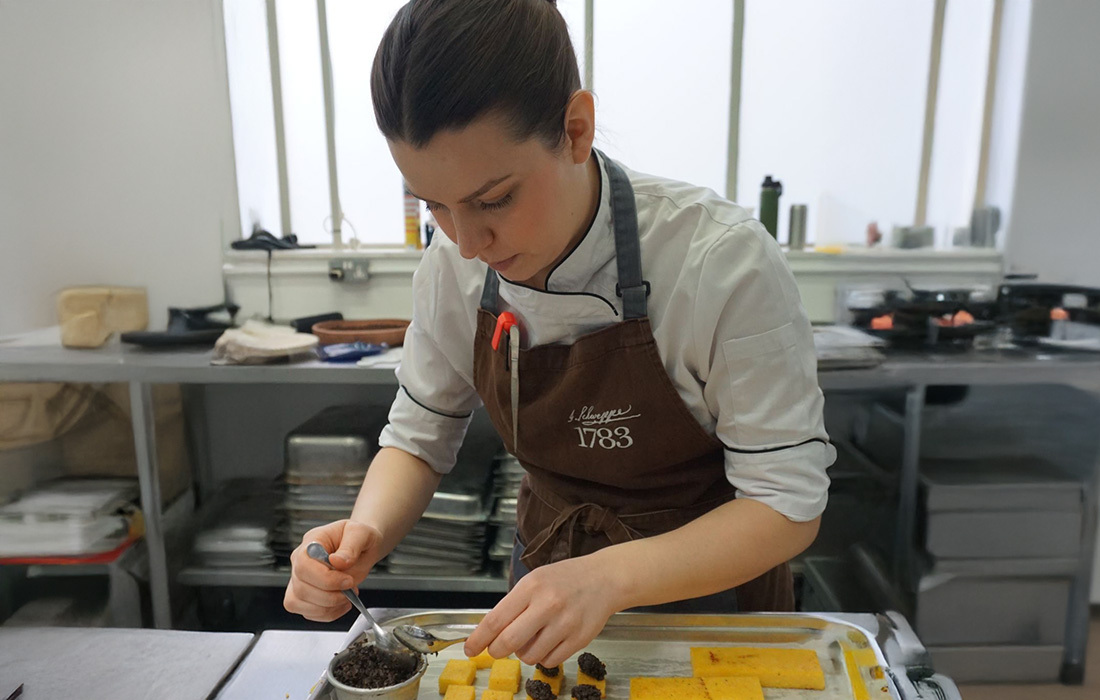Mentoring: Help them to grow
For hospitality newcomers trying to get a first foot on the career ladder, the advantages of mentoring are obvious: not only can they learn from the experiences of an industry old-hand who specialises in their area of interest, they are also able to expand their networks â" potentially putting them in the way of a whole host of job opportunities that would previously have been almost impossible to access.
But itâs not just the mentees who stand to benefit from the mentor-mentee relationship. Senior individuals in the industry who choose to share their experiences with up-and-coming hospitality professionals can get an enormous sense of satisfaction out of the process, as well as learning a lot along the way.
âWhenever youâre showing someone else what to do, or talking about the pros and cons of a situation, you end up learning a huge amount yourself,â says 2012 Hotelier of the Year Stuart Johnson, general manager of Brownâs Hotel and founder of the Savoy Society Mentoring Scheme, which has been running for five years and has so far matched 160 mentees with senior individuals in the hospitality industry.
âIt doesnât matter how old you are and how experienced you are, you still have the opportunity to learn. Most of the mentees weâre now coaching are of Generation Y and theyâre taking in technology at a much faster pace than we ever did. The way in which theyâre so eager to learn and move forward is something we learn from them. It inspires us and makes us sit up and smell the coffee!â
Becoming a mentor also makes sound business sense. âBoth the mentor and the mentee tend to become much more engaged in the job theyâre doing,â Johnson believes.
Moreover, mentors are able to improve their understanding of the demands of new recruits to the industry, which could result in much more effective internal training programmes and graduate placements.
âLetâs not forget that by 2020, Generation Y will make up over 50% of the workforce, bringing with them skills you cannot believe,â emphasises Emily Perry, head of commercial development at talent management specialist Purple Cubed (formerly Learnpurple). âWhat business wouldnât want to get a head start and understand and utilise these people?â
But mentoring isnât something to be entered into lightly: the relationship has â¨to be handled in the right way or it wonât be effective â¨for either party. âYou must not tell them what to do,â Johnson stresses. âYouâre there to offer them opportunities from your experience and paint the outcome of how each option might influence their future.
Mentoring is not â" and must not ever be â" a career website. Youâre there to tease out your menteeâs qualities so they can become the person that they want to be.â
Itâs also essential to remember that mentoring is a two-way flow. âThe mentee needs to come forward and ask questions or ask for advice when they need it, but the mentor has to realise the mentee is a youngster and will often be busy, working very hard,â Johnson notes. âThe mentor, therefore, needs to send the odd text or eâ'mail asking how things are going.â
There are a couple of ways to go about becoming a mentor: either you can set up a mentoring network within your business or you can join an established scheme such as The Bacchus Mentoring Programme at Oxford Brookes University or the Savoy Society Mentoring Scheme, which operates at 14 different universities.
For Johnson, the latter option is often the most effective. âYou need to have confidentiality and no bias,â he remarks. âMentoring is all about putting forward ideas, avenues and possibilities.â
The Savoy Society Mentoring Scheme, which is aimed at hospitality students from year two of university onwards and asks mentors to commit to a mentor-mentee relationship for a period of two years, including eight face-to-face meetings. Its success is testament to the effectiveness of this approach. âAbout 90% of the people who have been on the scheme have left university, graduated and got a very good position within the industry,â Johnson says.
Yet thatâs certainly not to say that an in-house mentoring scheme or even a more informal mentoring relationship with a younger employee at your company canât work just as well; you just need to ensure that certain boundaries are set.
âDecide the ground rules,â Perry advises. âBoth the mentor and the mentee need to discuss confidentiality and boundaries and itâs not for the mentor to act on anything discussed in the session. Rather, the mentee should drive the actions.â
Alternatively, you could bring in the experts to help. Women 1st, for example, runs an in-house mentoring programme for a group of women (up to 15 mentors and 15 mentees) through which both mentors and mentees receive a dayâs training to prepare mentors for their role and help mentees manage the partnership proactively.
Whichever way you go about it, becoming a mentor or launching a mentoring scheme can be extremely beneficial for your business. âItâs promoting the next generation of employees and makes financial sense for the business to develop people from within,â believes Luke Holder, executive head chef at Lime Wood Hotel, who was nominated for Mentor of the Year at the Hospitality Guild Apprenticeship Awards. âTo me, thatâs the biggest benefit. You get loyal people with a real understanding of the business.â
Perry agrees: âIt amazes us that organisations donât make more use of mentoring. Think about successful people in companies: surely it makes perfect business sense for their approaches, skills and knowledge to be passed on to others coming up through the ranks. Mentoring is a great solution â" low cost, effective and fulfilling for both the mentor and the mentee.â
Top tips on getting started as a mentor
Recognise your worth
Many senior individuals in the industry believe theyâre too old or behind the times to effectively mentor a young student, but thatâs simply not the case. âMentees donât want someone to tell them how to use a computer,â Brownâs Hotel general manager Stuart Johnson says. âThey want to dip into your knowledge and the experiences youâve had. Have confidence in your own achievements.â
Pick a mentoring scheme
There are several excellent schemes you could get involved with, including the Savoy Society Mentoring Scheme, the Women 1st Mentoring Programme and the Oxford Brookes Bacchus Mentoring Programme.
Set up an in-house mentoring programme
If youâre careful with establishing boundaries and ensuring mentor-mentee confidentiality, thereâs no reason why you canât launch a mentoring scheme within your own company. âRemember you canât have everyone mentoring and no one doing the work,â Purple Cubedâs Emily Perry emphasises. âSet boundaries and ensure there is mutual trust.â
Make sure you receive guidance
âMany mentors may not know what is involved and, if so, it is potentially dangerous to let them loose before they are trained,â Perry notes. Make sure you invest in mentor training or, alternatively, join a scheme like the Savoy Society Mentoring Scheme, which offers training for both mentors and mentees.
Make yourself approachable
âMentoring is about building trust and confidence in a person,â says Matthew Lloyd, head chef at Park Royal Warrington, who was nominated in the category of Mentor of the Year at the Hospitality Guildâs Apprenticeship Awards. âThis is not achieved by making them feel uncomfortable, but by taking the time to get to know an individual and finding out how you can support their development.â
Â
Â
















